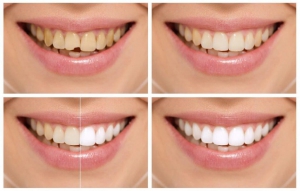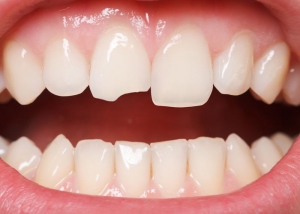Dental Bonding: What is Teeth Bonding & What to Expect
What is dental bonding?
Teeth bonding is a procedure that uses a liquid material and adhesives to create a strong bond between teeth. This bonding prevents teeth from falling out in the future and generally lasts for a lifetime. The procedure takes only 10 minutes and requires no anesthesia or pain relief. The final result of dental bonding looks similar to natural teeth, with some minor cosmetic changes – such as gaps between teeth – unavoidable during the healing process. Dental bonding is the perfect solution to keep your oral health in check and prevent tooth loss in the future!
When is dental bonding recommended?
 When it comes to dental bonding, patients may experience some pain, swelling, and bruising, but this typically goes away within a few days. Patients should expect their smiles to look better for years after dental bonding has been completed! Dental bonding is an effective way to repair cracked or damaged teeth and restore a patient’s smile. If you’re contemplating dental bonding, make sure to ask your dentist about the procedure and the potential risks and benefits of dental bonding.
When it comes to dental bonding, patients may experience some pain, swelling, and bruising, but this typically goes away within a few days. Patients should expect their smiles to look better for years after dental bonding has been completed! Dental bonding is an effective way to repair cracked or damaged teeth and restore a patient’s smile. If you’re contemplating dental bonding, make sure to ask your dentist about the procedure and the potential risks and benefits of dental bonding.
What to expect during dental bonding
Dental bonding is a process that replaces loose teeth with artificial dental implants. It’s a simple, quick, and pain-free procedure that can improve your smile in a hurry. The dentist will clean the area around the tooth to be replaced, remove any dead tissue, and then apply a temporary adhesive to the gum. Next, they’ll place an implant on this adhesive – like putting in a new roof! After securing the implant with screws or washers, your dentist will remove all the temporary materials. Dental bonding is a simple, quick, and pain-free procedure that can improve your smile quickly. The dentist will clean the area around the tooth to be replaced, remove any dead tissue, and then apply a temporary adhesive to the gum. Next, they’ll place an implant on this adhesive – like putting in a new roof! After securing the implant in place with screws or washers, your dentist will then take
How dental bonding works
 Teeth bonding is a procedure that involves applying a temporary adhesive to the tooth that’s being replaced and then placing the new tooth into place. Once the glue has bonded to your teeth, you can smile confidently and eat anything without worries! The adhesive will hold the new tooth in place until it has permanently bonded to your teeth. Dental bonding is a fantastic option for people seeking long-lasting restoration. Not only does it provide a lasting solution, but it’s also comfortable and pain-free. If you’re considering dental bonding, speak to your dentist about your options. They will be able to provide you with a detailed explanation of the procedure and answer any questions you may have.
Teeth bonding is a procedure that involves applying a temporary adhesive to the tooth that’s being replaced and then placing the new tooth into place. Once the glue has bonded to your teeth, you can smile confidently and eat anything without worries! The adhesive will hold the new tooth in place until it has permanently bonded to your teeth. Dental bonding is a fantastic option for people seeking long-lasting restoration. Not only does it provide a lasting solution, but it’s also comfortable and pain-free. If you’re considering dental bonding, speak to your dentist about your options. They will be able to provide you with a detailed explanation of the procedure and answer any questions you may have.
What happens before teeth bonding?
Teeth bonding is a process in which two teeth are brought together using dental adhesives. This process strengthens the tooth over time and helps reduce the risk of tooth decay and tooth fracture. Teeth bonding usually takes place when a child is around the age of 8-12 years old. After bonding, your dentist will remove any excess adhesive and clean the area around the teeth. If you have questions or concerns about teeth bonding, don’t hesitate to ask your dentist or doctor!
What happens during dental bonding?
When it comes to dental bonding, it is essential to know what is happening under the surface. Dental bonding is a process that uses resin to form a permanent bond around teeth. This makes teeth less likely to move during future dental procedures and ensures they are in place for the long haul. Although dental bonding is a safe and reliable way to secure teeth, there may be some minor discomfort associated with the process for a few days. However, afterward, most people report feeling significantly better. If you are considering dental bonding, speak with your dentist about the procedure and the possible risks. It’s the best way to ensure a positive dental experience.
Is dental bonding painful?
 If you’re considering getting dental bonding done, be prepared for some pain. However, it’s a painless procedure that helps fix teeth and protect them from future dental problems. Before the bonding procedure, you’ll need to abstain from eating or drinking for several hours. After the process, you’ll be prescribed medication to take for the next few hours. Dental bonding is a success story; you’ll quickly start noticing the benefits. You’ll start feeling more confident, and your teeth will look much better. Make sure to book an appointment to experience the dentist bonding procedure for yourself!
If you’re considering getting dental bonding done, be prepared for some pain. However, it’s a painless procedure that helps fix teeth and protect them from future dental problems. Before the bonding procedure, you’ll need to abstain from eating or drinking for several hours. After the process, you’ll be prescribed medication to take for the next few hours. Dental bonding is a success story; you’ll quickly start noticing the benefits. You’ll start feeling more confident, and your teeth will look much better. Make sure to book an appointment to experience the dentist bonding procedure for yourself!
What happens after teeth bonding?
Teeth bonding is a procedure that dentists use to improve teeth’ appearance and function. The dentist will temporarily hold your upper teeth to secure them into the base of your jawbone. After bonding, your bite will remain unchanged; all that has changed is the position of your upper teeth. You may experience pain and sensitivity around the area where your tooth was bonded, but this should disappear after a few days or weeks. Finally, you’ll need to visit the dentist every six months for checkups and maintenance work related to bonding (i.e., sealant application). If you’re considering teeth bonding, talk to your dentist about the procedure and what to expect.
Frequently Asked Questions
How long does teeth bonding last?
The tooth bonding procedure usually lasts 6 to 12 months but can last up to 2 years. During bonding, the dentist will put a plastic ring around your child’s upper and lower teeth. This process strengthens the tooth enamel and creates a more durable bond between the tooth and root canal filling.
What is dental bonding?
Dental bonding is when dental materials combine to create a more robust and durable tooth. Dental bonding can be done on the teeth’ crown, root, or lateral surfaces. The process usually takes about two hours and is painless for most people.
Is dental bonding worth it?
Dental bonding is worth it if you’re looking for a reliable and durable way to restore tooth integrity. Teeth bonding is a process where two small pieces of porcelain are inserted into the gaps between teeth to create a solid bond. The restoration lasts up to 10 years and can easily be repaired if needed.
Is dental bonding painful?
Dental bonding is not painful, but some people may feel pressure when the stents are inserted. After the procedure, you will be able to eat and drink. However, you should avoid drinking cold drinks or eating ice chips for the first hour after the process, as they can cause discomfort.
How long will teeth bonding last?
Teeth bonding usually lasts 3-6 months, but it can last up to a year. After teeth bonding is complete, you will no longer need any dental adhesive, and your dentist will be able to see that the bond is still holding firm. A routine checkup at the end of the process is required to ensure everything is still good.
What types of materials are used for teeth bonding?
Many different materials can be used for teeth bonding. The most common material is a dental adhesive tape which holds the tooth in place while it hardens. Dental acrylics are also popular as they offer a natural look and feel.
Conclusion
Dental bonding is a procedure that strengthens the bond between your teeth and dental restoration. It is often recommended for patients who have teeth that are moving or who have lost teeth due to tooth decay or gum disease. The dentist will resin the tooth using a special light and heat during dental bonding. This resin will form a strong bond between the tooth and the dental restoration, ensuring the restoration remains in place for a long time. While dental bonding is not always painful, some patients do experience discomfort during the procedure. Make sure to speak to your dentist about your individual dental bonding experience and expectations.



